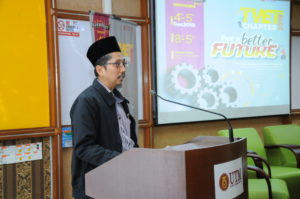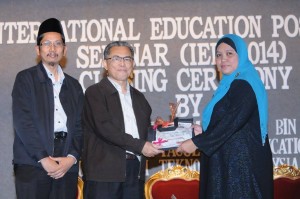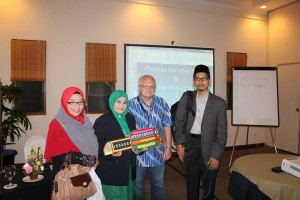The inaugural of TVET Chapter Seminar has been take place at Seminar Room, School of Education, FSSH UTM. This seminar has been initiated by the TVET Research Group (RG TVET) to encourage the spirit of knowledge and experience sharing amongst TVET institutions people such as polytechnics, community colleges, vocational colleges, and others.
 Fig 1: The Director of the TVET Chapter 2019 giving opening speech.
Fig 1: The Director of the TVET Chapter 2019 giving opening speech.
Dr Aede who is currently the Head of RG TVET has started this initiative and decided to organise this event for the first timeby collaborating with School of Education FSSH UTM in conjunction with Bulan Inovasi Sekolah Pendidikan 2019 (School of Education Innovation Month 2019). To make this happen, Dr Aede has been appointed as the Director of TVET Chapter 2019. This two days event (4th and 5th December 2019) has successfully attracted presenter from UTM (12 person)and others TVET Institution such as polytechnics (25 persons), and community colleges (2 persons). All articles whic had been presented will be published in a proceeding.

 Figure 2: Momento photo with all member of committee, guest of honour, and participants
Figure 2: Momento photo with all member of committee, guest of honour, and participants
